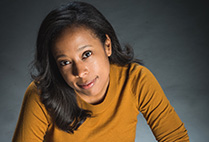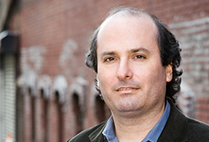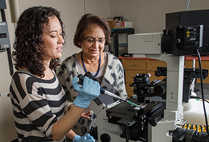Those who knew Herbert Mason by reputation saw his retelling of the Epic of Gilgamesh in verse narrative, a finalist for a National Book Award in 1972, as evidence of his interest in ancient religion. His students and friends knew there was more to his appreciation of the ancient Mesopotamian narrative: its enduring celebration of friendship.
Mason, the William Goodwin Aurelio Professor of History and Religious Thought, a University Professor emeritus of history and religion, and a College of Arts & Sciences professor of history and religion, died on January 1, 2017, at age 84. Over decades at Boston University, he taught courses on subjects ranging from Sufism to Irish history, infusing his scholarly expertise with anecdotes and wisdom he’d gleaned from long relationships with collaborators and mentors. Such connections shaped his life and career and formed his abiding belief that the voices of the past were instrumental in understanding it.
“He believed history needed to be taught with the stories of the people who lived at that time,” says his wife, Jeanine Young-Mason (SON’74, SED’82). “It is the person’s voice that’s the real history.”
Mason’s early life was largely shaped at age seven by his father’s sudden death—a loss that forever linked him with the Epic of Gilgamesh, a narrative that centers on a quest to conquer death in the name of love. After reading in English and French literatures, history, and philosophy as an undergraduate at Harvard, he moved to France, where an acquaintance introduced him to the great scholar of Islam Louis Massignon. Mason recounted their first meeting in his 1988 book about their relationship, Memoir of a Friend:
“He was standing upon my entering his study, but he then sat down at his desk, on which there was a small typewriter and sheets of paper scattered about along with a book open on which he had been making notes with a pen still held in his left hand. ‘Yvonne tells me you are interested in Gilgamesh,’ he said in English.
‘Yes,’ I said shyly.
‘He went on a long journey in search of the secret of immortality to bring his friend Enkidu back to life.’
I said nothing but stared at him and waited for him to say more.
‘Eternal love is to be wrung from our inmost heart. I learned that fifty-one years ago when I lost a friend to death.’
I sat still staring at his parched lined face and sad eyes as he pointed slowly with his now empty left hand toward the window or to some place beyond.”
Mason left France determined to translate into English Massignon’s best-known work, a four-volume history of the 10th-century Muslim martyr Mansur al-Hallaj. He returned to Harvard to pursue a master’s in Middle East studies and a doctorate in Near Eastern languages and literatures, and began a translation process that would last 13 years.
The friendship between the two scholars proved formative; just as Mason had sat, rapt, with Massignon, listening to his mentor expound on the life of al-Hallaj, countless students found themselves seeking out Mason after class to hear him talk about Massignon and the rare texts Mason had studied for the translation, published in 1982 as The Passion of al-Hallaj.
“He was a fantastic storyteller,” says Christian Krokus, a University of Scranton associate professor of theology and religious studies, who was a PhD student at Boston College when he chose to write his dissertation under Mason’s supervision at the University. “Just a font of a rich context for the academic texts. I’d say, ‘Have you ever read this,’ and inevitably, he’d not only read it, but knew the author personally.”
His work was constantly enriched by people he met by chance—from the Italian artist Dino Cavallari, who became a close friend and collaborator on an illustrated version of Gilgamesh, to his wife, whom he met during her graduate studies at BU’s School of Education. He listened as often as he spoke and enjoyed celebrating the expertise of his students and colleagues.
Betty Anderson, a CAS associate professor of history and director of the Institute for the Study of Muslim Societies & Civilizations at BU’s Frederick S. Pardee School of Global Studies (Mason was founder and director of the institute), recalls that he was unflinching in his support of her and other scholars of Islam across the University and dogged in his efforts to bring them together for interdisciplinary studies. In his seminars, he remained quiet while urging his undergraduate students to debate the material.
“It was an awakening for me to discover how to justify my beliefs, and I took that skill with me to law school,” says criminal defense attorney Sarah Peerwani (CAS’08). “He got me ready for the real world.”
Mason wrote every day, producing five translations, four volumes of poetry, two memoirs, and eight works of fiction, two of them set for posthumous publication. In recent years, he switched from keeping bound journals to writing a blog on his website, where he posted short biographical and creative sketches. In a 2016 entry, he considered Massignon’s theory of Badaliya, or exchange, as represented in the way individuals form connections that are strong, unselfish, and enduring:
“One is given a self, one is driven to create a second self, and finally one is called to exchange oneself with another who is suffering physically, spiritually. For the third self one takes on the other’s suffering self. The first self is given by nature, the second by will and creativeness, the third by love.”
















































It was through an old and dear friend, Sr. Jeanne-Marie (Lise) Pearse, O.S.B. that I came to know Herbert Mason back in the 1960-70’s. She and I startd a very small monastic community after interrupted/incomplete novitiates in separate Benedictine monasteries of women in U.s. and France. Ultimately I did not continue in the group but remained close and supportive, as was our friend the scholar, professor, and writer our dear and gentle Herbert for whom we did some clerical work on his Massignon ms. In 1972 Herbert and family visited me wo celebrate the birth of my little Benjamin and Herbert did us the honor of agreeing to be Benjy’s Godfather. We were a good bunch in the Srs. tiny chapel of St. renaeus House on a side street in Somerville for the baptism and joyous celebration definitely home-made, with original dance, song, and my own platters of French traditional christening sweets. Herbert found th time to visit his littl Godchild several times over the first few years; it is sad that after we moved away from the Boston area, I lost contact with Herbert, all the more so that my grad. studies were in ancient comp. religions and the relationship beteen ancient religions and contemporary law codes in several societies. My copy of his Gilgamesh he inscribed to Sr. Jeanne-Marie, and she gave it to Benjy aloing with a hand-made ikon from their monastic workshops several years later. I now read parts of the Gilgamesh to my 90-yr.-old husband, here in brautiful old Newburyport; I miss Herbert and feel much joy at his memory.
Mary Misrahi Rancatore
March 30 (Good Friday) 2018
I was privileged to have Professor Mason as my Major Professor in UNI from 1988 to 1993. He taught with passion and compassion. I remember getting the news in the STH elevator that he had had a heart attack as I was in the process of writing my MA Thesis, and the day I was on the top floor of the same building the day he first came back to work after his recovery. There was something reassuring in hearing the distinctive sounds of his footfalls along the corridor, and I was very happy to hear them.
I recall one course I took in CLA where here said, very seriously, ‘We never digress here,’ and proceeded to turn the page of the book he was reading and waft from it a bit of dry grass. ‘Faery bless,’ he said with twinkle in his eye, and continued reading.
My sincere condolences go to his wife, children and his whole family. You have lost someone quite special, as have all who studied with him.
I’d like to add that Professor Mason leave behind his wife, Jeanine Young-Mason, children Cathleen Mason, Paul Mason (CFA 87), Sarah Mason (COM 90), grandchildren Thomas, Julia, Mary and Camille, stepsons, Scott Angell, Gregg Angell (MED 90), Glenn Angell and their families.